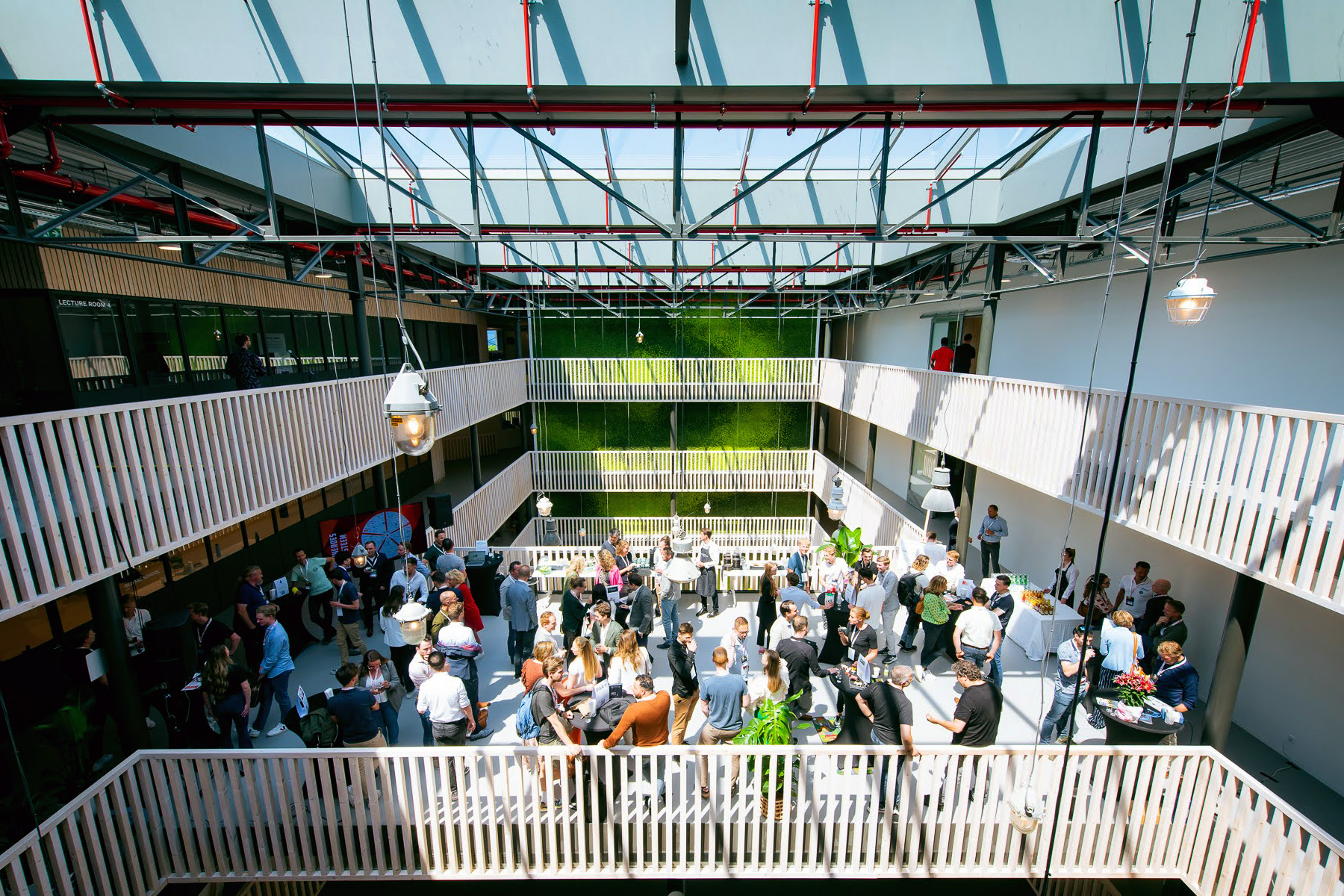Titaanic Impact
How Titaan, a new space in The Hague impact district, built a home for impact people.

Titaan lives up to its name. It is “the biggest impact campus of Europe” per Unknown Group, the people behind the space. And it comes with big ambitions: the words “Founders Fix the Future” greet you just inside the door.
The building is pentagon-shaped, but to walk around it, one could mistake it for a circle – fitting, as circularity is a goal. Nearly 1,000 solar panels on the roof generate power. Certain parts of the building smell like the forest, emanating from a floor-to-ceiling wall of green lichen at the back of the atrium.
On 12-13 June, Titaan will host Impact Europe’s Transformers event, combining Business of Impact and Capital Ideas. As this gathering intends to break silos between corporate impact actors, impact funds and everyone in between, we sought to partner with a space that aims for a similar effect. To learn how Titaan sets up impact people to thrive, one can start with who’s in the building.
Brackish waters
An estuary is where seawater and freshwater mix, becoming brackish. The result: an ecosystem teeming with life. We can’t comment on the salinity of the canals Titaan overlooks, but inside the building there's clearly some mixing going on. Titaan encourages different groups of impact people to blend: “impact startups and scale-ups, students, industry leaders, governments and investors.” These groups share goals for positive change and innovation for people and planet.
Impact startups and scale-ups are the long-term residents of Titaan. But the space is also the campus of Unknown University, a unique higher education program in impact entrepreneurship. Students at this “incubator-like school” actively mix with founders and other impact people: informally in the halls, in their classwork (founders are often lecturers) and at the many events the space hosts.
Titaan’s events bring in people every corner of Europe’s impact ecosystem. They range from the regular Impact Founder Meetups to Get in the Ring pitching competitions (sometimes literally in a boxing ring).
Events go beyond startup activities and networking, however. The space recently hosted the release of The Hague Climate Agreement, focused on topics of energy transition, sustainable mobility and the circular economy – with the active participation of scale-ups who have made climate deals.
When I visited Titaan on 25 April, they were in full preparation for the all-night Unknown University Hackathon. Leaders of the university, Jurgen Nieuwenhuijsen and Thomas Blekman, introduce the event in this energetic video, which made me feel wide awake – despite the no coffee rule at the event (“Avoiding energy crashes,” Thomas explains).
The Hackathon will focus on solving challenges in food waste. That means the massive test kitchen in Titaan will be put to good use. And ‘good’ use: it’s run by KiCo, a food lab whose motto reads, “Food for good. Good for food.”
One big garage
Titaan bills itself as a “14,ooo square-meter startup garage.” Ideas that start in garages occupy a certain state of exaltation in startup mythology (Apple! Google!), but the garage resonance doesn’t end there. Garages have the informal, comfortable spaces necessary for creative thinking – comfortable old chairs, room to pace – but there’s also the wide world outside – the garage door – when founders are ready.
Titaan has all of that. In addition to that KiCo kitchen – where Transformers attendees can expect a workshop on how to fight food waste by pickling – Titaan includes spaces for makers and media, a gym, a podcast studio and a bar.
Titaan’s garage effect is also about scale: there’s plenty of work to do inside the building, but lots of connections to the world outside, too. We hope you’ll join us in making those connections in June.

